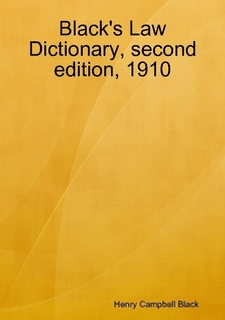Abeyance
Abeyance

In the law of estates. Expectation ; waiting; suspense; remembrance and contemplation in law. Where there is no person in existence in whom an inheritance can vest, it is said to be in abeyance, that is, in expectation; the law considering it as always potentially existing, and ready to vest whenever a proper owner appears. 2 Bl. Comm, 107. Or, in other words, it is said to be in the remembrance, consideration, and intendment of the law. Co. Litt. §§ 646, 650. The term "abeyance" is also sometimes applied to personal property. Thus, in the case of maritime captures during war, it is said that, until the capture becomes invested with the character of prize by a sentence of condemnation, the right of property is in abeyance or in a state of legal sequestration. 1 Kent, Comm. 102. It has also been applied to the franchises of a corporation. "When a corporation is to be brought into existence by some future acts of the corporators, the franchises remain in abeyance, until such acts are done; and, when the corporation is brought into life, the franchises instantaneously attach to it." Story, J., in Dartmouth College v. Woodward, 4 Wheat. 691, 4 In Ed. 629.